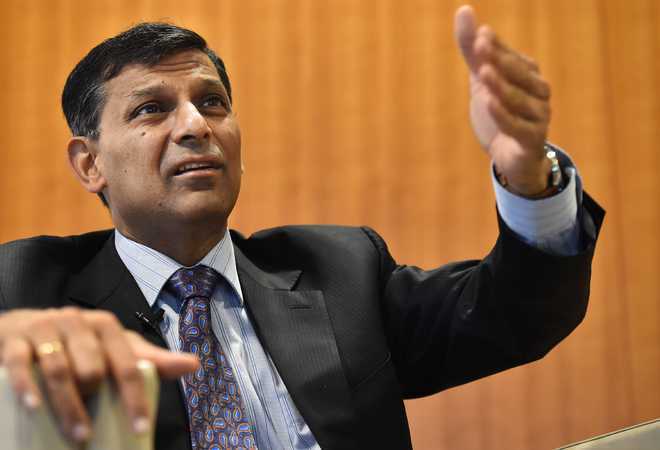Janjivan Bureau / New Delhi : Former RBI governor Raghuram Rajan on Monday suggested the government to privatise select public sector banks, set up a bad bank to deal with NPAs and dilute the role of Department of Financial Services.
The reforms are necessary to ensure growth of the banking government without the periodic boom-bust cycles, said a paper titled ‘Indian Banks: A Time to Reform?’ co-authored by Rajan and former Reserve Bank Deputy Governor Viral Acharya.
“Re-privatization of select PSBs can then be undertaken as part of a carefully calibrated strategy, bringing in private investors who have both financial expertise as well as technological expertise; corporate houses must be kept from acquiring significant stakes, given their natural conflicts of interest,” the paper said.
Noting that the government obtains enormous power from directing bank lending, it said sometimes this power is exercised to advance public goals such as financial inclusion or infrastructure finance, sometimes it is used to offer patronage to, or exercise control over, industrialists.
“Winding down Department of Financial Services in the Ministry of Finance is essential, both as an affirmative signal of the intent to grant bank boards and management independence and as a commitment not to engage in ‘mission creep’ when compulsions arise to use banks for serving costly social or political objectives,” the paper noted.
According to the paper, private asset management and national asset management ‘bad banks’ should be encouraged in parallel to the online platform for distressed loan sales.
“The national public sector ‘bad bank’ could serve as a vehicle to aggregate loans, create management teams for distressed firms, and possibly buy and hold distressed assets in a sector like power till demand returns.”
“It could provide fall-back prices for loans sold by PSBs,” the paper suggested.
It also argued that state-linked banks can be a first step in altering the ownership structure of some public sector banks (PSBs), where the government brings down its stakes to below 50 per cent, creating distance from operations of banks, and improving governance along the way.
“Apart from regulatory and market reforms, we propose reforms to bank governance and ownership, especially for public sector banks. With the current enormous strains on government finances, there may be a window of opportunity in which these reforms may be possible since the status quo is untenable,” the paper said.
On dealing with bad loans, the paper said out-of-court restructuring frameworks can be designed for time-bound negotiations between creditors of a stressed firm, failing which the National Company Law Tribunal (NCLT) filing should apply.
The two need to work in tandem as the Insolvency and Bankruptcy Court’s (IBC) procedural threat serves as the fall-back, facilitating meaningful negotiation out of court, it added.
On bank licencing norms, the paper pitched for on-tap licencing of banks to be kept open at all time.
“On-tap licensing for banks can be kept open at all times – with an annual invitation for applications – to create more vibrant banking with entry of better players, especially allowing high-performing micro-credit institutions to become small finance banks, and similarly, high-performing small finance banks to become universal banks.
“Conversely, poorly performing universal banks can be relegated to small finance bank status,” it suggested.
The paper also stressed on the need of allowing PSBs to recruit laterally while retaining the talent they have.
“Incentive structures for management need to be strengthened with longer terms for senior management, better assessment of performance, performance-based promotions and extensions, as well as some reliance on lateral hiring, which would also bring in state-of-the-art banking ideas and practices,” it said.


















